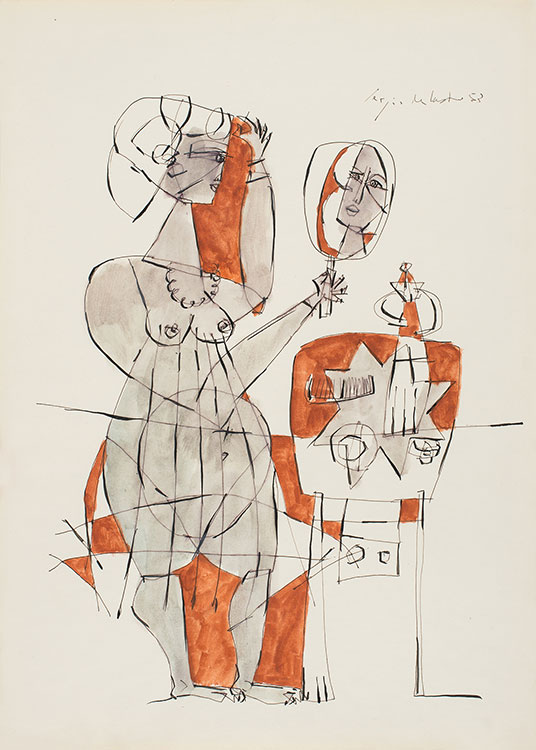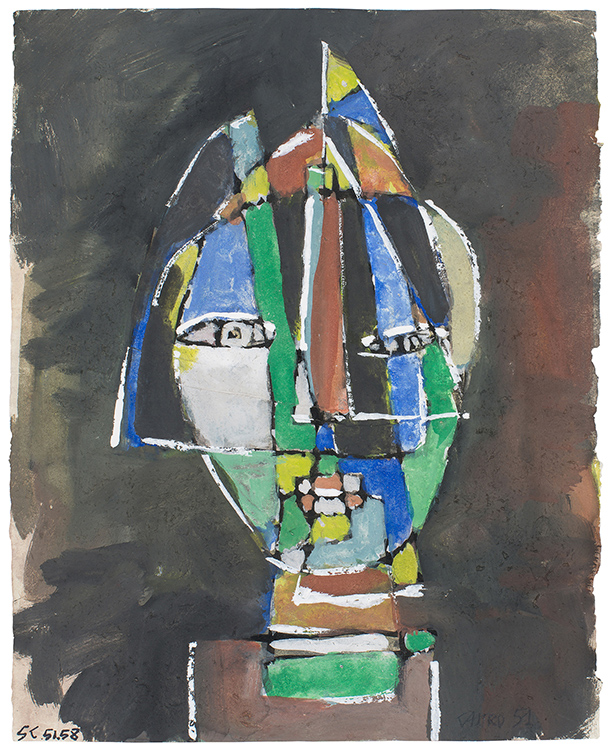SERGIO DE CASTRO
Exhibition at the gallery – January 2022
Chapter 2/4
On this occasion, discover the painter Sergio de Castro in 4 chapters.
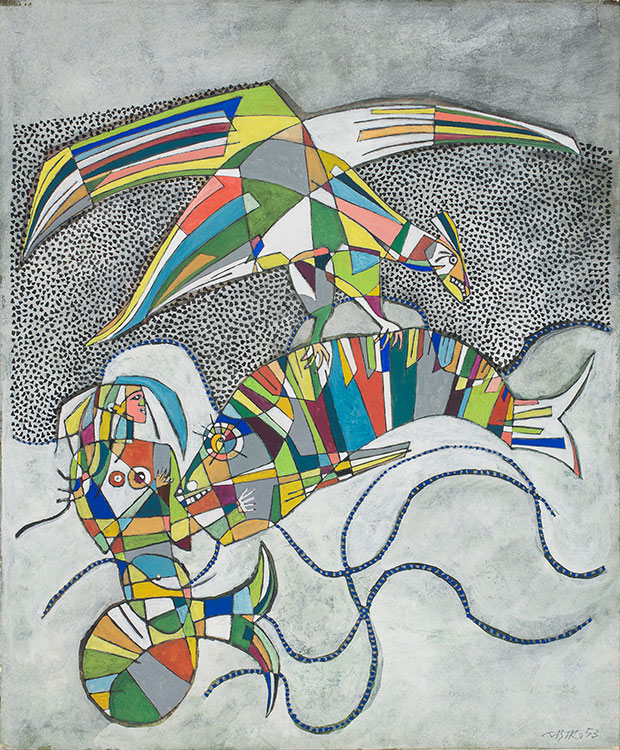
Untitled – 1953
Gouache on paper laid down on canvas
44,5 x 37 cm / 17.5 x 14.6 in.
Diane de Polignac Gallery, Paris
LITERARY AND HISTORICAL SOURCES
Sergio de Castro was an erudite artist who referenced literary themes in his work. From mythology and history to the Bible and fables, everything was a source of inspiration. Fantastic characters came to populate the graphic work of Sergio de Castro as mermaids or fauns. As the writer John Russell stated, “In the work of the graphic period there is, on the contrary, a wry and nimble humour in the treatment of the figures. This humour owes something to Klee, and something also to Torres Garcia, but the quintessence of it, the affectionate mischief of the story-telling, is Castro’s own. When his Jonah gets clear away from the whale, or his idiotic St George gets down to the duty of killing the dragon, the familiar stories come up quite fresh and there is something at once dandified and incisive about the manner of their presentation.” [1]
[1] John Russel « Sergio de Castro », Goya n° 46, Madrid, 1960
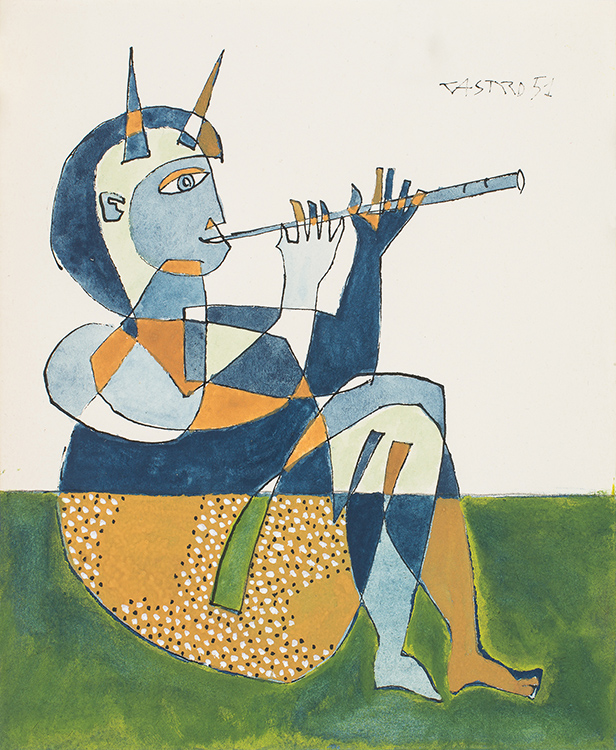
Untitled – 1951
Gouache and ink on paper
20,5 x 17 cm / 8.1 x 6.7 in.
Diane de Polignac Gallery, Paris
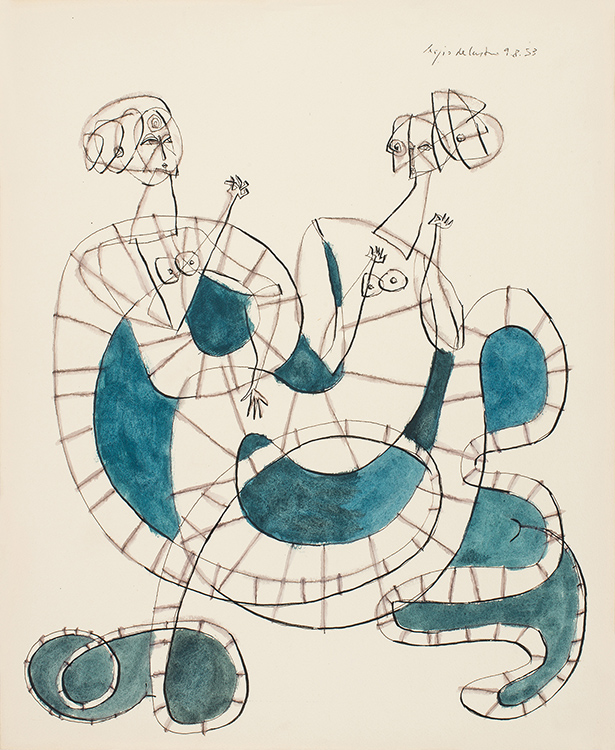
Untitled – 1953
Ink and gouache on paper
37 x 30 cm / 14.6 x 11.8 in.
Diane de Polignac Gallery, Paris
The artist painter Sergio de Castro also turned to ancient civilizations as sources of artistic and iconographic inspiration. The Argentine artist was familiar with Inca art—the geometric shapes, almond-shaped eyes and the frontal position of figures undoubtedly marked the artist. The writer Jean Bouret said the following about Sergio de Castro: “To define him in spirit is not easy at all, he has resonances of Maya artists, this need to decompose the moments of an action into rhythms.” [2] Sergio de Castro was also inspired by ancient Egypt. From the simplified style that makes the features so expressive to the admirable balancing of headdresses on angular necks, all of this can be found in his graphic profiles.
[2] Jean Bouret « À la découverte de SERGIO de CASTRO », Revue ART, Paris, 16 mars 1951
Sergio de Castro was a knowledgeable artist who also made references to the history of painting and its classical themes. The woman in the mirror, for example, is an ancient theme that was particularly appreciated during the Renaissance. Following on from Giovanni Bellini and Titian, the theme was later depicted by Pre-Raphaelites such as Dante Gabriel Rossetti, as well as modern artists such as Salvador Dalí, Fernand Léger and Pablo Picasso—a lineage that the painter Sergio de Castro has joined. The art critic Denys Sutton wrote: “His cultivated, determined and pure art, while avoiding that which is only of the concern of the fashion and the pitfalls of the pastiche, expresses a faith and an adherence to the concept of beauty in itself which are all the more original due to their long neglect .” [3]
[3] Denys Sutton, Sergio de Castro, Matthiesen Gallery exhibition catalog, Londres, 1958
